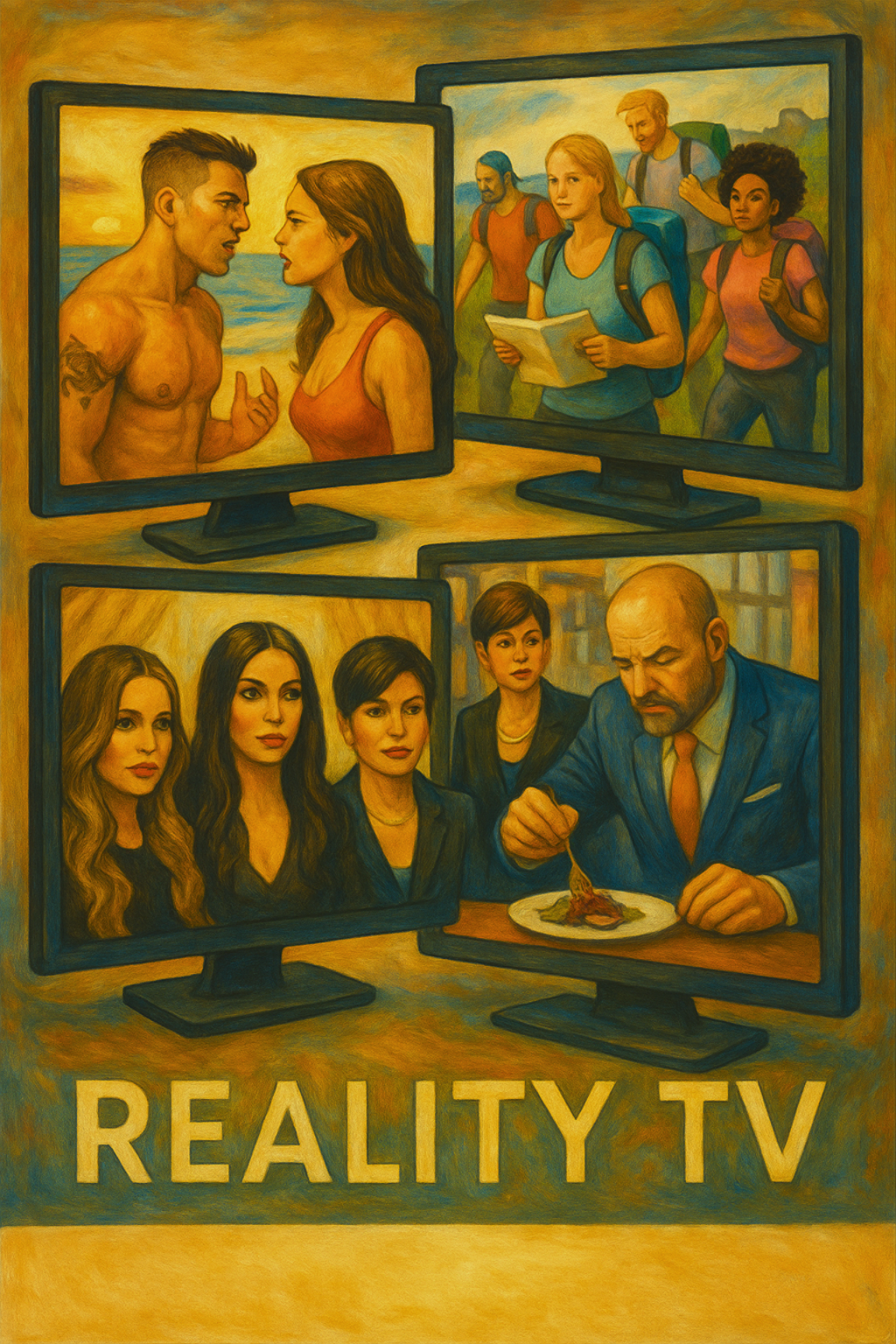Reality shows have become a significant part of contemporary entertainment, raising important questions about their cultural implications. As we explore the reality shows impact on society, we unravel what these shows reveal about our values, beliefs, and social norms.
Understanding Reality Shows
What Are Reality Shows?
Reality shows are unscripted television programs that feature real-life situations and people’s interactions. These shows range from competitive formats, such as Survivor and The Amazing Race, to docuseries like Keeping Up with the Kardashians. They are designed to entertain while often providing commentary on various aspects of society.
The Influence of Reality TV on Modern Society
The impact of reality shows on society extends beyond mere entertainment. They reflect and shape public opinions, societal values, and cultural norms. According to research from the Academic Research Portal, reality television acts as a mirror, reflecting various demographics and social issues.
Key Themes Explored in Reality Shows
1. Social Status and Class: Reality shows often amplify themes of wealth, privilege, and competition. Shows like The Real Housewives franchise emphasize the lifestyles of the rich and famous, showcasing luxury while simultaneously breeding discontent among viewers.
2. Relationships and Gender Dynamics: Many shows focus on romantic relationships and social interactions, revealing the complexities of modern dating. Programs like The Bachelor often exaggerate romance for entertainment, but they also expose societal norms regarding gender roles.
3. Authenticity vs. Performance: Although reality TV claims to present authentic experiences, there is often a script behind the scenes, leading viewers to question what is genuine. This creates an environment where perceptions of reality can become skewed.
Reality Shows and Societal Values
How Reality TV Shapes Public Opinion
Reality shows impact on society can be seen in how they inform viewers about current events and social justice issues. Programs like Queer Eye help shape public opinion on topics like LGBTQ+ rights and mental health, emphasizing positive change.
Effects of Reality Television on Public Perception
Reality television can lead to formation of stereotypes or social biases. For example, shows that depict certain ethnic groups through a negative lens can contribute to societal prejudices. A study from the Government Research Database highlights how media portrayal significantly affects audience perceptions.
Cultural Relevance of Reality Shows
The significance of these shows arises from their ability to connect with cultural zeitgeists. As society evolves, reality television adapts, showing how collective attitudes towards race, gender, and class are shifting. By analyzing reality shows, we can gain insight into contemporary societal values.
Sociological Analysis of Reality Shows
What Reality TV Reveals About Culture
Reality shows impact on society can be analyzed through a sociological lens, examining their role in cultural expression. They both reflect and distort real-life experiences, leading to discussions about authenticity and representation.
Modern Society Through Reality Television
In today’s fast-paced world, reality television speaks directly to audience values and desires. Whether it’s the pursuit of fame or the quest for ideal relationships, these shows often captivate viewers because they portray relatable struggles and triumphs.
Critique of Reality Television
Insights from Reality TV Phenomena
While reality shows entertain, a critique emerges regarding their ethical implications. Critics argue that they exploit participants for ratings, raising questions about consent and authenticity. Moreover, as reality shows impact on society, they can perpetuate harmful stereotypes, prompting viewers to question the integrity of such entertainment.
Engaging with Reality Shows
How to Watch Mindfully
To derive positive perspectives from reality television, consider the following:
* Analyze characters’ decision-making and implications on real life.
* Reflect on the portrayals of social issues and ask if they align with reality.
* Engage in discussions about the shows to understand diverse viewpoints.
Conclusion
As we’ve seen, the reality shows impact on society is multifaceted, with significant implications for our understanding of culture. They reveal societal values, shape public perception, and encourage dialogue about pressing social issues. Engage with reality television thoughtfully, and you might discover more than just entertainment, perhaps the reflection of our society itself.
By exploring the dynamic relationship between reality shows and society, we invite our readers to contemplate their own viewing habits and the broader implications of this form of entertainment.
